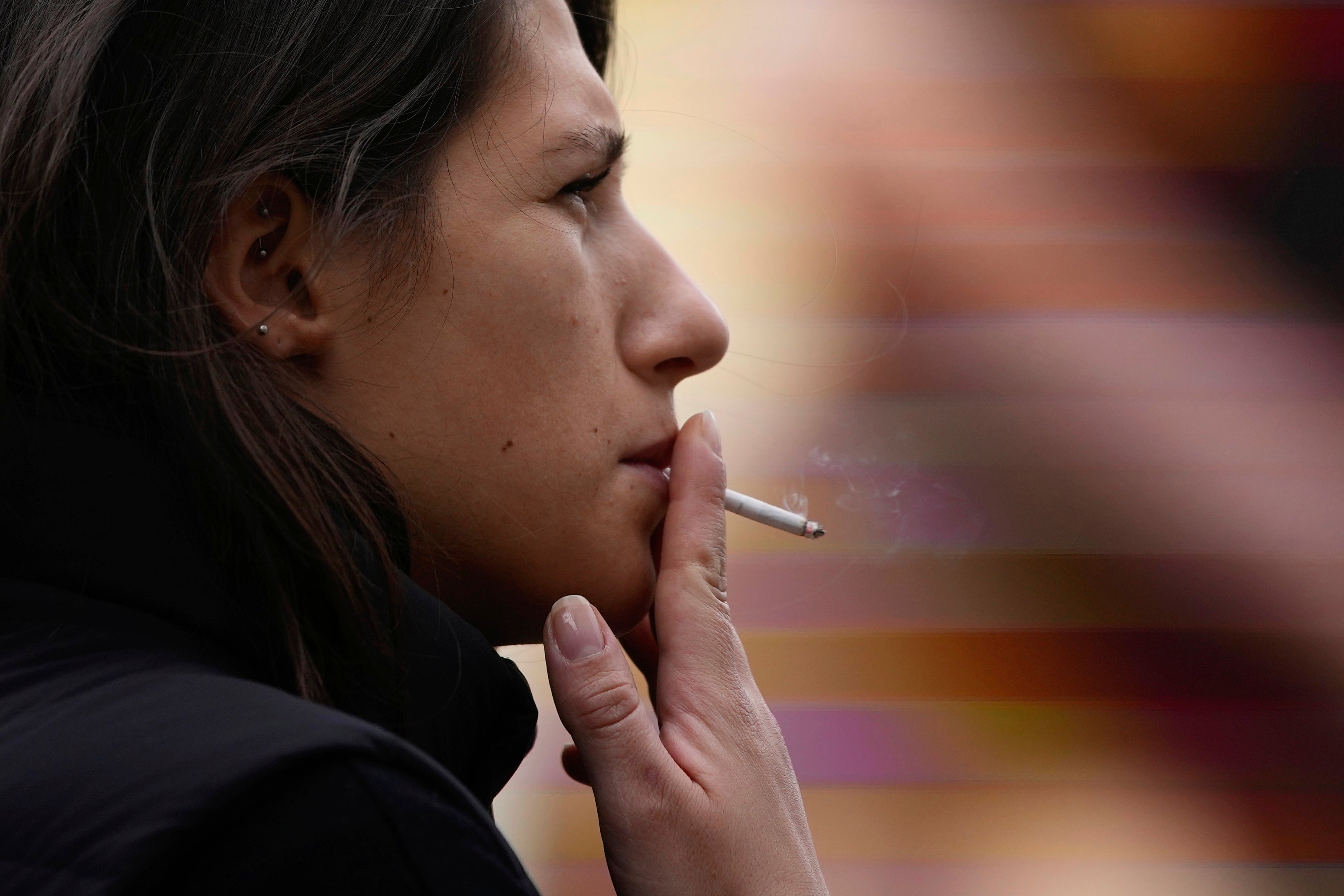Smoking ban: On balance, this illiberal measure deserves to fail
Editorial: The end is worthy, and the means are gradual, but that does not justify a ban

The Independent is supportive of the aim of Rishi Sunak’s policy of a gradual ban on the sale of tobacco. If young people can be dissuaded from ever taking up smoking, they and their wider society will be better off.
The government’s plan to raise the age at which people are permitted to buy cigarettes by one year every year – so that those approaching 18, the current minimum age, will never reach it – is ingenious. It means that tobacco will eventually be banned, at around the turn of the next century, without existing smokers being criminalised.
And yet, in the end, we come down against it. We believe it to be wrong in principle that adults should be prevented by law from engaging in activities that are not harmful to others. Given that the direct harms to non-smokers have been minimised by legislation against smoking in enclosed public spaces, the defenders of the legislation are driven to argue that smoking imposes costs on the country as a whole through the National Health Service.
It is true that smoking is the biggest single cause of serious illness and early death, but the argument that this is a net cost to the NHS over time is fallacious. It may be brutally cynical to say so, but if people live longer, they will tend to cost the NHS more.
Those seeking to defend the policy, including the prime minister, need to make a different argument, therefore: that it is the responsibility of the government to decide for adults that they will be grateful for being compelled to avoid the risks of lung cancer, respiratory illnesses and heart disease. It is at this point that we hesitate. We should be reluctant to extend the power of the state over decisions that people are capable of making for themselves.
There are many good reasons why that power should be deployed to discourage smoking, and especially to lean heavily against young people starting smoking in the first place. The ban on advertising and the restrictions on display and packaging have probably gone about as far as they can go without restricting sales to a limited number of government-run outlets. The tax on tobacco is now so high that the average cost of a packet of 20 cigarettes is now about £15. There is no good reason why this should not go higher still.
Indeed, there are good reasons for thinking that cigarettes are still too cheap. We agree with Victoria Atkins, the health secretary, when she says that we cannot be “complacent” about the decline in smoking in recent decades. She argued in the Commons today against those in her own party who say that the smoking ban is unnecessary because smoking is dying out anyway.
Unfortunately, there is evidence that cigarettes are becoming increasingly fashionable among young people again, after a long period in which they tended to be seen as uncool. So keep putting up the price, and enforce the restrictions.
But an absolute ban? That goes too far, even if brought in gradually in a manner that emulates the policy of the former Labour government of New Zealand. That policy was abandoned by the new conservative administration last year, before it could come into effect.
The plan for a minimum age that rises each year would have some curious effects. It would mean an arbitrary division of adults between those allowed to buy tobacco and those not allowed to. It seems odd to imagine a 41-year-old asking a 42-year-old to buy cigarettes for them, and the reason for this is that it violates the normal principle that all adults should be treated the same.
The idea of two classes of citizen, older and younger, seems so absurd that it is tempting to imagine that the real purpose of this law could be to take the shortcut to a complete ban before too long. There is considerable support for a total and immediate ban – some opinion polls suggest that more than half of Britons would back it. But that really would be illiberal, and it would make the problems arising from an underground, unregulated market worse.
The Tobacco and Vapes Bill passed its first stage in parliament on Tuesday night, despite a substantial Conservative rebellion. Given that the opposition parties support it, and that Mr Sunak seems keen to have the law form part of what would otherwise be his rather thin legacy as prime minister, the bill is likely to make it to the statute book.
But we would urge MPs, when they come to consider the bill in more detail, to pause to consider whether they really believe that they should tell their fellow citizens what risks they should take with their health.






Join our commenting forum
Join thought-provoking conversations, follow other Independent readers and see their replies
Comments